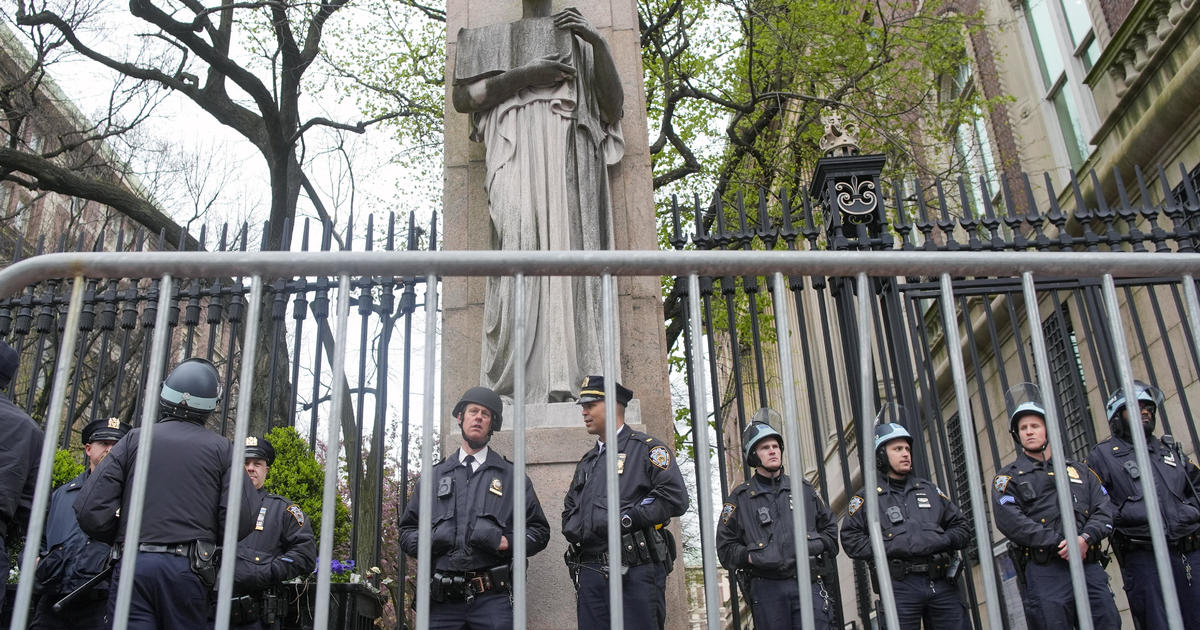Pilot Tells NTSB Plane Wasn't Slowing Down Before Skidding At LaGuardia
NEW YORK (CBSNewYork) -- A pilot told investigators that a plane that skidded off the runway failed to slow down as it landed at LaGuardia Airport and went on to skid off the runway last week, the National Transportation Safety Board said Monday.
Given the new details, experts have begun wondering whether operator error was to blame, CBS2's Weijia Jiang reported.
As WCBS 880's Peter Haskell reported, the pilot told the NTSB that when Delta Airlines Flight 1086 from Atlanta came in for a landing Thursday morning, the autobrake setting was at maximum. But the plane wasn't slowing, the pilot said.
Pilot Tells NTSB Plane Wasn't Slowing Down Before Skidding At LaGuardia
The maximum setting "means it's going to be the most abrupt deceleration of the plane once it hits the ground," said attorney Daniel Rose of the aviation and consumer safety law firm Kreindler & Kreindler LLP.
The flight crew said the automatic flaps, or spoilers, did not deploy either, and the first officer on the flight had to do it manually.
"In this case, something went wrong," Rose said.
Rose, a former U.S. Navy pilot, said both automatic settings only work when the plane is securely on the ground.
Passengers indicated that the plane was bouncing during landing. Rose said the system may have registered it as still flying.
"Then right after, that is when we were in the grass and started getting bounced around," passenger Mark Klafter said after the accident.
Rose said he did not know whether operator error triggered the malfunctions.
"It's still a little too early to tell," he said.
The wintry weather might have played a role too, experts said. The Port Authority said minutes before the accident, crews had plowed the Runway 13 where the plane landed and two planes had landed safely.
But the pilot and flight crew also said when he broke through the low ceiling of clouds, the runway "appeared all white." Even though it had been snowing heavily, the pilot had been told braking action for an earlier flight had been good.
U.S. Sen. Charles Schumer (D-N.Y.) also pointed to the age of the plane.
The plane had been in service since Dec. 30, 1987, and had 71,195.54 flight hours and 54,865 flight cycles at the time of the accident, the NTSB said.
"The question is, are the braking systems up to snuff?" Schumer said. "I've asked the NTSB not only to do a thorough examination of then braking system of this plane, but of other planes like it."
The accident Thursday morning left six passengers with minor injuries.
All passengers were evacuated, 127 men, women and children. Some slid down the wing while others climbed out the rear. All found helping hands from Port Authority of New York and New Jersey ARFF team members.
NTSB investigators will put together a timeline using information from the plane's blackbox data recorder. They will also be able to tell whether the pilots were speeding, which could have caused the bouncing the passengers reported.
Rose believes ultimately, there will not be a single reason for the scare, but rather, a chain reaction that led to trouble.



